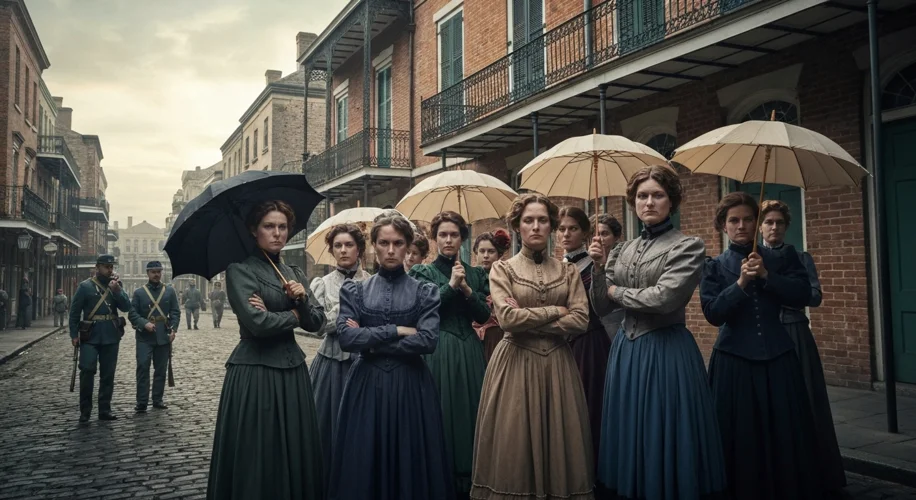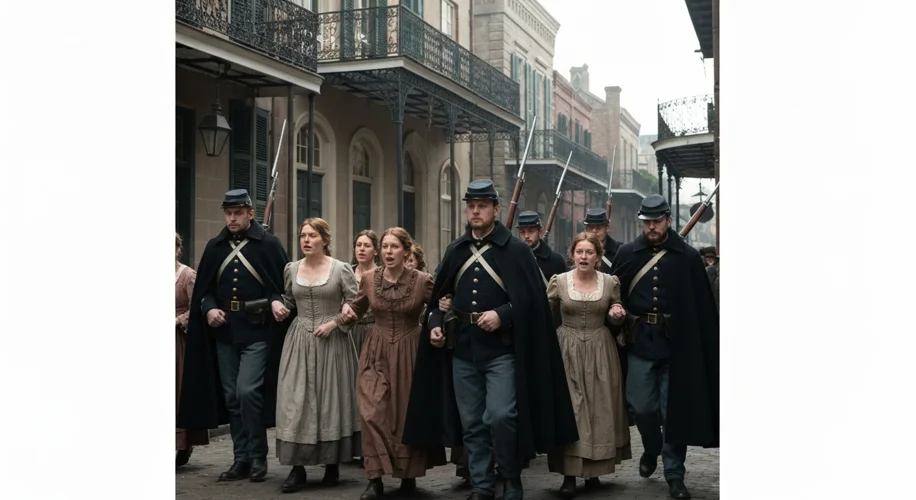The humid air of New Orleans in the summer of 1862 hung thick and heavy, much like the oppressive occupation under Union General Benjamin Butler. His troops had seized the Crescent City in May, a vital Confederate stronghold, but the victory was far from sweet. The populace, largely unsympathetic to the Union cause, continued to openly defy the occupiers.
Butler, a lawyer by training with a reputation for being both brilliant and brutal, was increasingly frustrated. His men faced constant taunts, insults, and even open acts of defiance from the city’s residents, many of whom still saw themselves as citizens of the Confederacy.
One particular incident, which occurred on May 1st, 1862, served as a flashpoint. A group of women, outraged by the presence of Union soldiers, reportedly gathered in the streets and hurled insults and refuse at them. This was not an isolated event; the women of New Orleans, often shielded from the direct brutalities of war, became a potent symbol of Confederate resistance. They saw themselves as ladies, upholding the honor of their fallen soldiers and their way of life, and they were not afraid to show their contempt for the invaders.

Butler, a man who rarely shied away from a harsh measure, saw this as an intolerable affront. He needed to quell this spirit of defiance, and he believed a sharp, swift blow was necessary. On May 15, 1862, he issued General Order No. 28, a decree that would soon earn him the infamous moniker “The Beast.”
The order was chillingly simple, yet its implications were profound:
“All females residing within the lines of the Army of the Gulf, who shall be found playing, singing, or otherwise expressing any sympathy with the enemy, or in any way showing contempt for the Federal flag or uniform, will be regarded as common women of the town, plying their vocation. They will be subject to the same penalties as are now imposed by law on common prostitutes.”
In essence, any woman found to be disrespectful to Union soldiers or symbols would be treated as a prostitute, subject to arrest and imprisonment. The decree didn’t just target overt acts of defiance; it could be applied to any expression of disapproval – a frown, a muttered word, a song, even a look.
The impact was immediate and devastating. The women of New Orleans, accustomed to a certain social standing and protection, found themselves stripped of their dignity and vulnerable to the arbitrary power of the occupying forces. What constituted “expressing any sympathy with the enemy” was left to the discretion of Union soldiers, opening the door to widespread abuse and humiliation.
One widely reported incident involved a Mrs. Phillips, whose husband was a Confederate prisoner of war. She was reportedly arrested and subjected to the indignity of being placed in the common jail for expressing her grief over her husband’s capture. Another account speaks of women being forced to clean public areas or perform menial tasks, their social status disregarded.
The order was met with widespread condemnation, both in the occupied South and, surprisingly, in the North. Even President Lincoln, though he did not revoke the order, was reportedly dismayed by its harshness. Butler’s actions were seen by many as an overreach, a violation of basic human decency, and a tactic that was more likely to breed deeper resentment than to foster compliance.
From a historical perspective, General Order No. 28 is a stark reminder of the brutal realities of occupation and the ways in which warfare can be waged not just on the battlefield, but in the social and psychological lives of civilians. Butler, in his attempt to assert control, ultimately alienated a significant portion of the population and created a legacy of bitterness that would long outlast his command in New Orleans.
It highlights a dark, often overlooked, aspect of the Civil War: the impact of military policy on women, particularly in occupied territories. While men fought on the battlefields, women faced a different kind of war, one waged through social control, humiliation, and the erosion of their status and rights. General Order No. 28 stands as a grim testament to the lengths to which a determined commander would go to break the will of a defiant populace, and the profound, often gendered, consequences of such actions.

